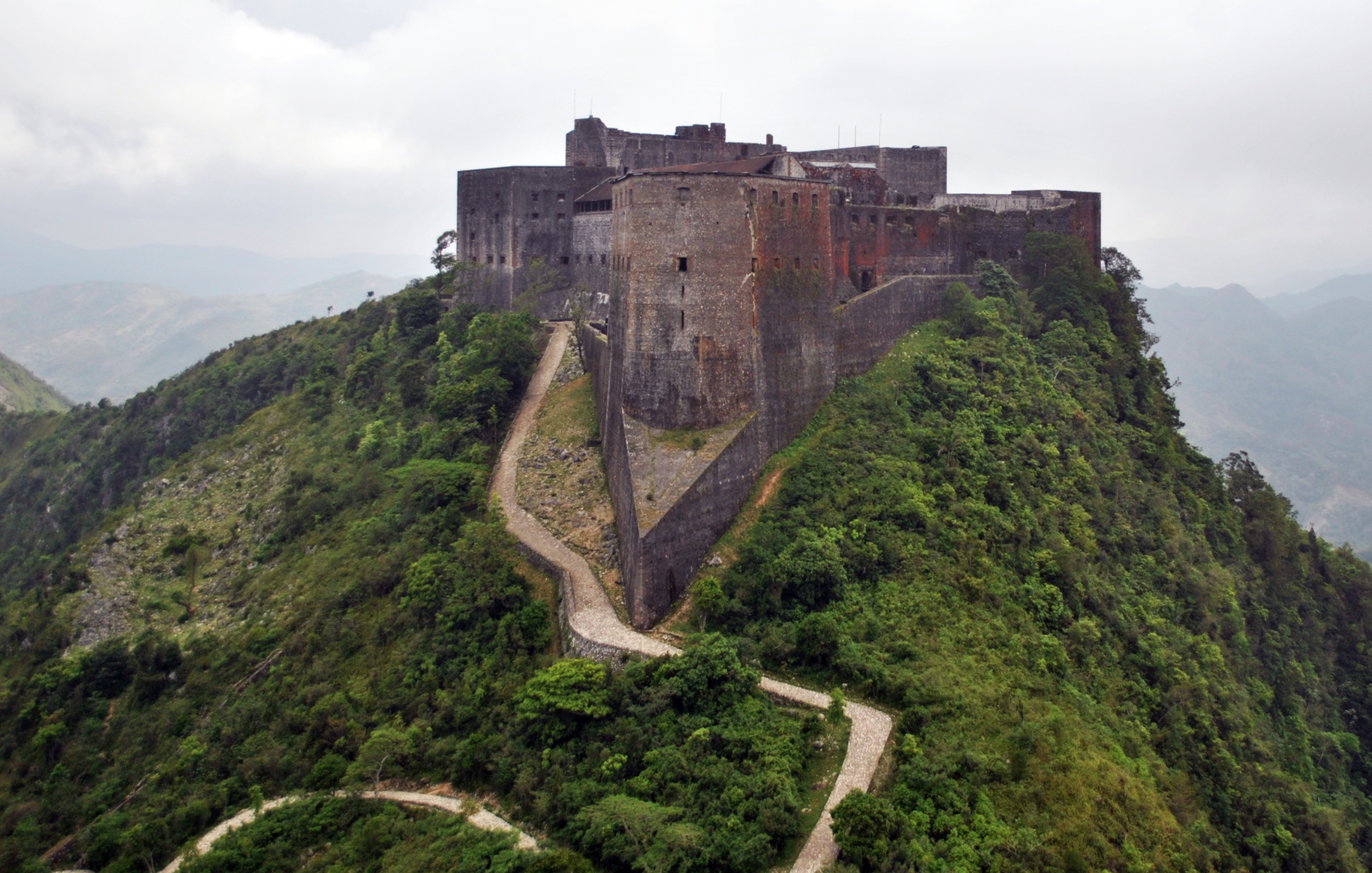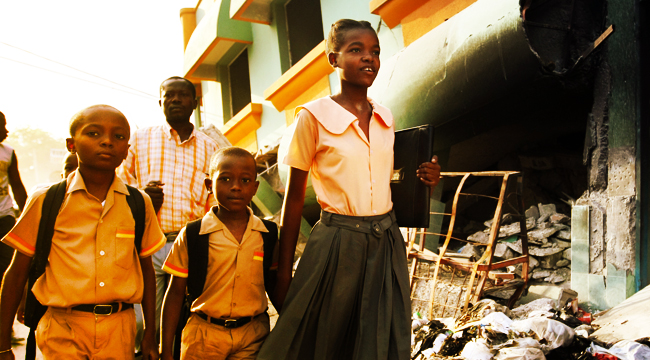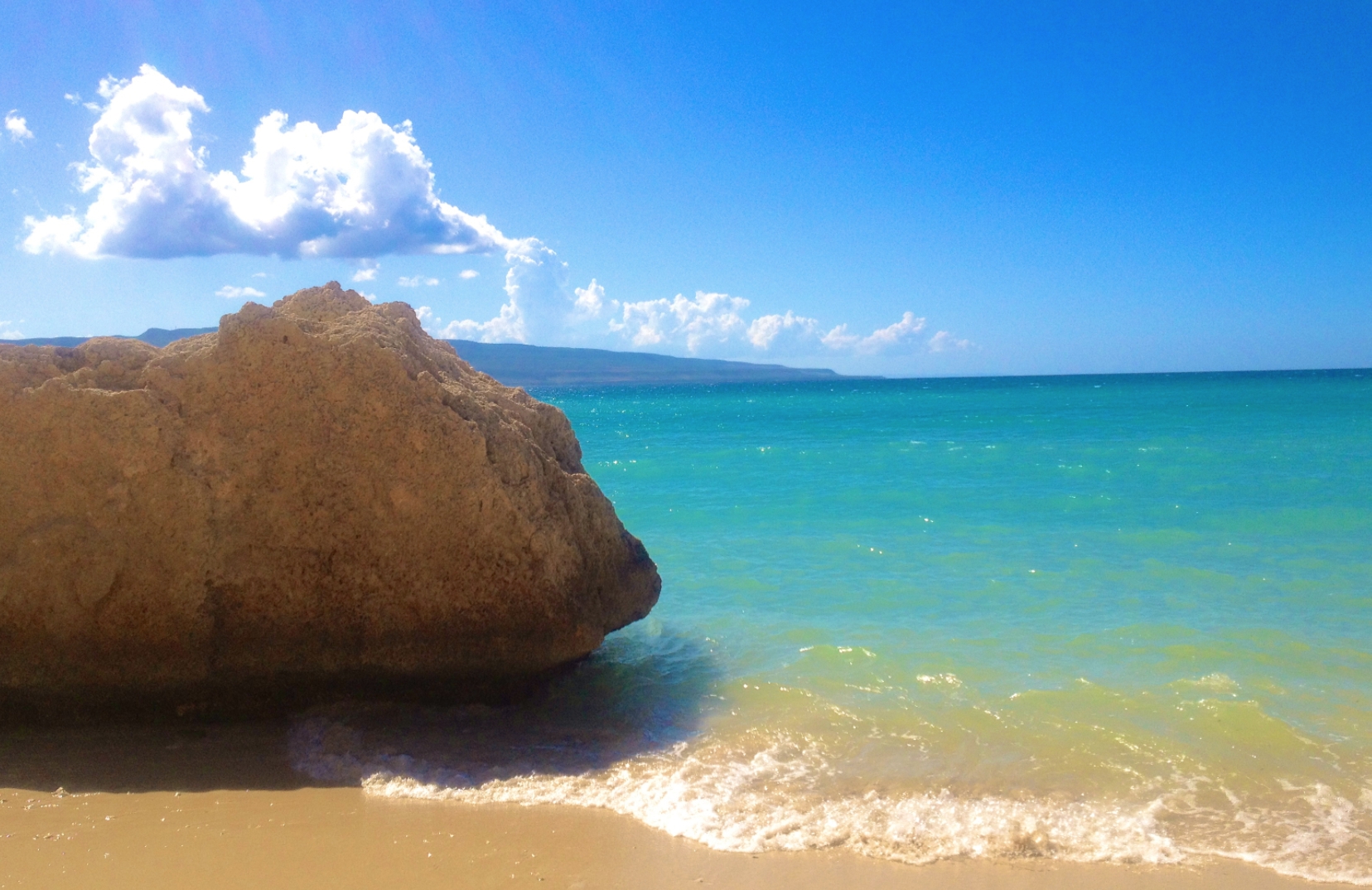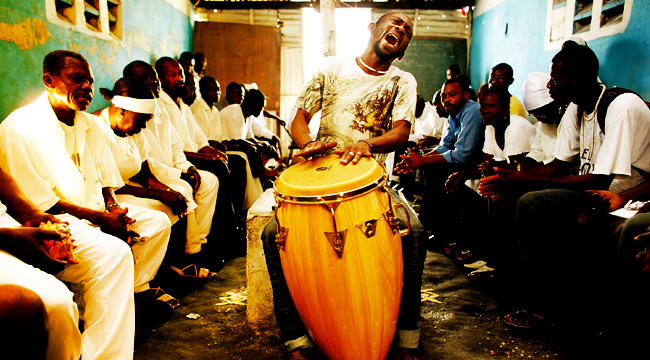
On January 1st, I sat at my uncle’s dining room table, taking in spoonfuls of the soup joumou while listening to him explain to my boyfriend the importance of having the vegetable and pasta-heavy pumpkin dish at the top of each year. It wasn’t for good luck and fortune, much like how Americans from the south eat collard greens and black-eyed peas on New Year’s Day. It was a 214-year long tradition rooted in independence.
After enslaved Haitians defeated Napoleon’s military (the world’s most powerful army at that time), they celebrated their victory and freedom by having pumpkin soup. This was the very same pumpkin soup they’d cook for their slave masters; a dish they were forbidden from enjoying themselves. The act continues to proudly serve as a reminder that Haitians are a free people and pays homage to our ancestors who fought for our freedom — a fight which we are still feeling the reverberations of to this day.
On Wednesday, President Trump once again spoke disparagingly about Haiti, my father’s homeland. He referred to it as a “shithole” — along with El Salvador and an unspecified group of African countries. Previously, he reportedly said that all Haitian immigrants have AIDS. It’s a stereotype Haitians have long fought to erase, reinforced by the leader of the free world. In fact, in 1990, my parents were part of the 80,000 who marched across New York City’s Brooklyn Bridge to protest the FDA’s policy banning all Haitians from donating blood.
Trump’s words are even more ridiculous because they came just a day before the eighth anniversary of the January 12th earthquake. The 7.0 magnitude quake that killed as many as 300,000 Haitians and displaced upwards of a million. That feels incredibly pointed for we Haitians living here.

Here’s the thing about Haiti. It’s a magical island nation — with some of the most beautiful scenery on earth. You’ve just never seen nor heard about those elements, because of this constant AIDS and “shithole” narrative. From the green hills in the countryside of northern Haiti to the many white, sandy beaches to the south, the land remains a hidden treasure to the outside world.
Oh, and the people! Haitian people — my people — are some of the strongest and most resilient humans on the planet. Just ask Anderson Cooper or Don Lemon or… any human who has visited. We are not the lazy-beggars-waiting-for-handouts that we’re often portrayed to be.
Part of this, of course, can be blamed on cable news media’s seeming obsession with disaster and poverty porn. For as long as I can remember, I’ve been hammered with images of Haitians in despair and pleading for help. Political unrest and natural disasters brought many cameras in Haiti, showing the suffering without any of the joy — thus skewing the world’s perception of the country.
It’s as if we don’t have the Citadelle, a historical man-made marvel sitting majestically atop a mountain in Cap-Haitian, often referred to as the 8th Wonder of the World. As if Haiti isn’t home to Bassin Bleu, one of the world’s most scenic waterfalls and natural pools. As if Haiti doesn’t have Kabik beach, Wahoo Beach, Labadee and all the other postcard-worthy beaches that ring the island and Ile-A-Vache.
Sorry, Don: There’s nothing shithole about a place where you can lounge in a beach hammock while reading a book.

The hundreds of thousands of travelers who visit Haiti each year go to experience the enchanting island with the delicious food and unique sights and sounds. They go match wits with locals in a lively game of dominoes. Or to watch intense pickup soccer matches. It’s where laughing children dressed in their crisp school uniforms are eager to show off the latest dance moves.
Haiti is the land with the colorful bungalows, intricately designed gingerbread houses, and Creole cottages that inspired New Orleans’ distinctive architecture. There’s a vibrant art scene on the island — filled with locals creating vivid paintings ranging from portraits to abstract images. Hardworking artisans carve wooden sculptures of masks, people, chalices, etc. Metal workers hammer away at sculptures that they then sell to buyers looking to hang the unique piece in their homes or businesses.
People who know Haiti understand the allure of Haitian music. Be it the big band sound of kompa that commands hips to sway with the beat or the Vodou sounds of mizik rasin that echoes our African history with its use of tribal drums.

Haitian cuisine is unlike any other, but it’s much better on the island than you’ll ever find here on the mainland. Travellers and locals alike can’t get enough of thick-sliced plantains, crispy chicken, and succulent pork chunks — all fried to perfection and topped off with spicy pikliz on the side, or the aromatic black rice and mushrooms drizzled with well-seasoned Haitian sauce. Fruits like mangos and coconuts are just a little bit sweeter down that way. The vegetables are just a little bit tastier. The meat just a little bit juicier. That cup of Starbucks fails to compare to the smell and taste of freshly brewed Haitian coffee, and cremas certainly isn’t eggnog.
Of course, Haiti isn’t without its troubles — but every country has its own troubles, right? Some countries have tragic earthquakes, others have ignorant, bigoted presidents. However, most countries didn’t have to pay their oppressors millions to be recognized as independent. This was true for Haiti.
Quick history lesson here because they damn sure aren’t teaching it in school: In 1825, 21 years after Haiti freed itself from slavery by defeating Napoleon’s French army, France demanded Haiti pay an indemnity of 150 million francs plus give a 50% tariff discount on all French imports to compensate for the loss of business. Haiti was France’s most profitable colony up until the slave revolt, and without it, France basically needed alimony.
The newly formed black republic had no choice, as France threatened re-enslavement and sent warships to surround the island. The European country, along with many other nations including the US, refused to recognize Haiti’s status as a free and trades were banned. This wrecked Haiti’s already frail economy.
With their backs against the wall, Haiti signed the agreement and eventually, the indemnity was lowered to 90 million francs, thus beginning France’s economic oppression of Haiti (of which the effects are still felt today). In fact, Haiti didn’t finish paying off the indemnity until 71 years ago. It took the island 120 years with them routinely taking out loans from France to pay France. That’s not a typo. No money came into Haiti without France getting interest payments.
This part of little-known history is what’s usually missing from the destructive narrative media pushes out when they’re discussing Haitians living in poverty. “The poorest country in the western hemisphere” is what they like to say, while completely ignoring everything else that makes Haiti what it is.
The memories created in Haiti cannot be created anywhere else. There’s a magic to the country. You feel it the minute you step off the plane, and it calls tourists back the second they leave. A shithole doesn’t do that. Haiti does.






